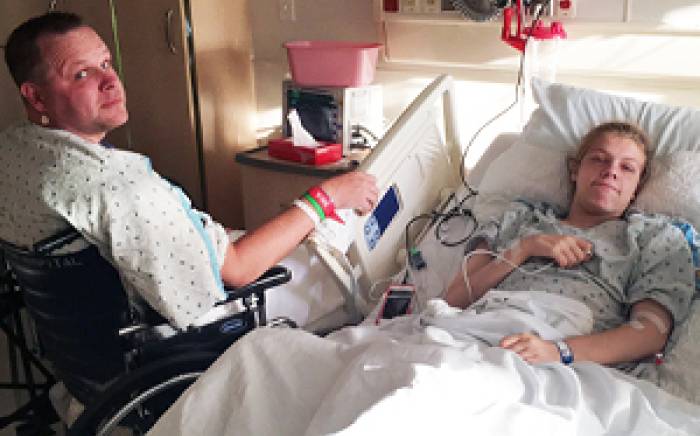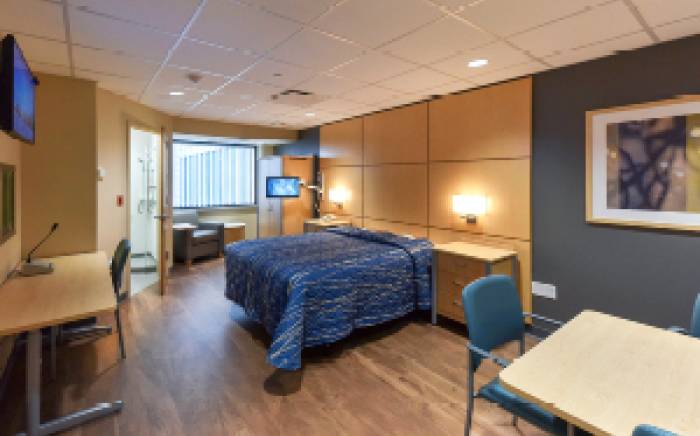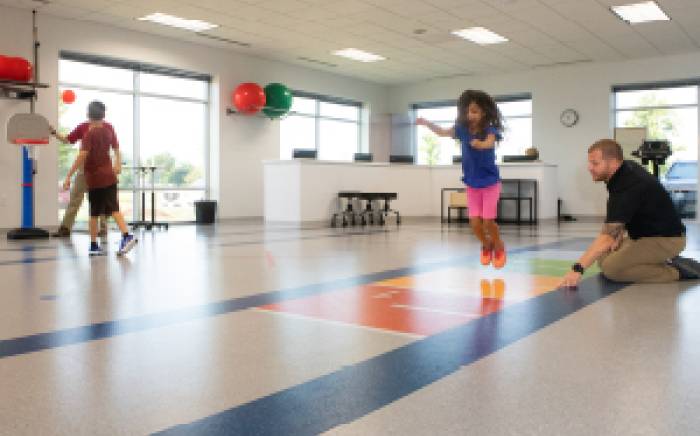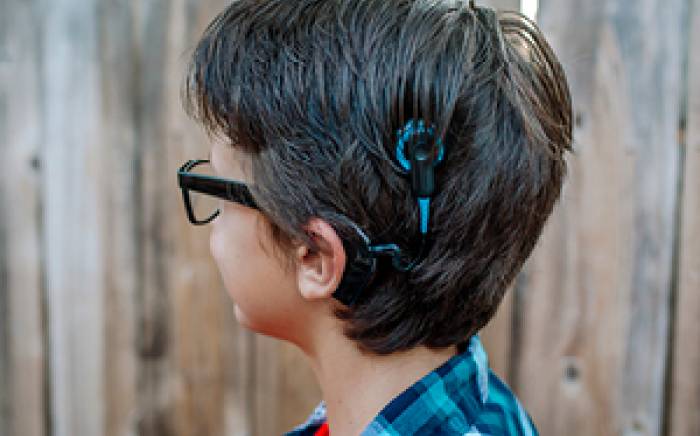The Rett Spectrum Clinic at St. Louis Children’s Hospital and Washington University School of Medicine offers children with these rare disorders what Robin Ryther, MD, PhD, Washington University pediatric neurology at St. Louis Children’s Hospital, describes as a “home.”
“Rett syndrome and related disorders such as CDKL5 require a particular understanding by pediatric subspecialists and other medical professionals about how these disabilities progress, the treatments required, and the support needed by both patients and their families,” says Dr. Ryther, clinic director. “Our clinic offers an interdisciplinary approach that ensures our patients receive care from those familiar with these rare and debilitating disorders.”
Rett syndrome is a unique neurodevelopmental disorder that begins showing its effects in infancy or early childhood. It mainly is seen in females of all racial and ethnic groups, although in rare instances it occurs in boys. Most cases are caused by a mutation in the MECP2 gene on the X chromosome, which results in a mutated or absent normal MECP2 protein. This protein is needed to regulate other genes that control normal development of regions of the brain responsible for sensory, emotional, motor and autonomic function. In addition, it has been shown that mutations in the FOXG1 gene and the CDKL5 gene also cause Rett syndrome.
“In most cases, children with Rett syndrome have typical early development. Often between ages 6 and 18 months their development begins to slow and then regress. Communication skills and purposeful use of their hands are typically lost; and sometimes, a slowing of their head growth also becomes apparent,” says Judy Weisenberg, MD, Washington University pediatric neurologist at St. Louis Children’s Hospital, and clinic co-director.
These first indications are followed by stereotyped hand movements—such as hand wringing or finger tapping — and gait disturbances. Other symptoms that may develop are seizures, gastrointestinal problems, and disorganized breathing patterns resulting in hyperventilation or breath-holding. As the disorder progresses, motor problems may increase, and many patients develop scoliosis that requires surgery. Eventually, many patients with Rett syndrome require maximum assistance with all aspects of daily living.
“The complexity of care needed by these patients necessitates input from multiple pediatric specialists, among them neurologists, dietitians, and physical, occupational and speech therapists, particularly those specialized in augmentative communication; and, as needed, cardiologists, pulmonologists, gastroenterologists, orthopedic surgeons, geneticists, and endocrinologists,” says Dr. Ryther. “Our clinic is designed to address all of the needs of our patients in a coordinated manner that emphasizes understanding, convenience, and accessibility. And in addition to medical care, the clinic is a means for these families to build a community that emphasizes support and education as well as to access the latest research trials.”
Dr. Ryther first became interested in Rett syndrome when she diagnosed her first patient with the disorder during her neurology residency. “Over time, these girls develop an intense eye gaze that for a physician is an evocative call to interpret what they are communicating,” she says. “Our augmentative communication team helps these patients find their voice through advanced computer technology operated through eye gaze. This has enabled us to understand that many Rett syndrome patients are bright, intelligent girls living in a body that causes us to underestimate them.”
Currently at least 20 Rett syndrome patients are seen at Children’s Hospital. As that patient population increases, Drs. Ryther and Weisenberg look forward to participating in research trials focused on discovering a cure for the disorder and to developing their own Rett syndrome-related research studies.
Dr. Ryther specializes in patients with MECP2 mutations, and Dr. Weisenberg has a special interest in those with CDKL5 mutations. Patients eligible for the clinic include those with:
- Clinical diagnosis of Rett syndrome or atypical Rett syndrome
- Confirmed genetic abnormality in MECP2 (including point mutations, deletions and duplications)
- Confirmed genetic abnormality in CDKL5
- Confirmed genetic abnormality in FOXG1
- Evaluation for any of the above
“For some patients we focus exclusively on managing their Rett syndrome in collaboration with their local neurologist, while for others we provide all of their neurology care,” says Dr. Ryther. “It really is up to the parents and their current providers as to the breadth of care we provide to their children.”
The clinic is held on Fridays in Suite 2600 at 4444 Forest Park Avenue. For more information or to make an appointment, call Children’s Direct at 800.678.HELP (4357).










